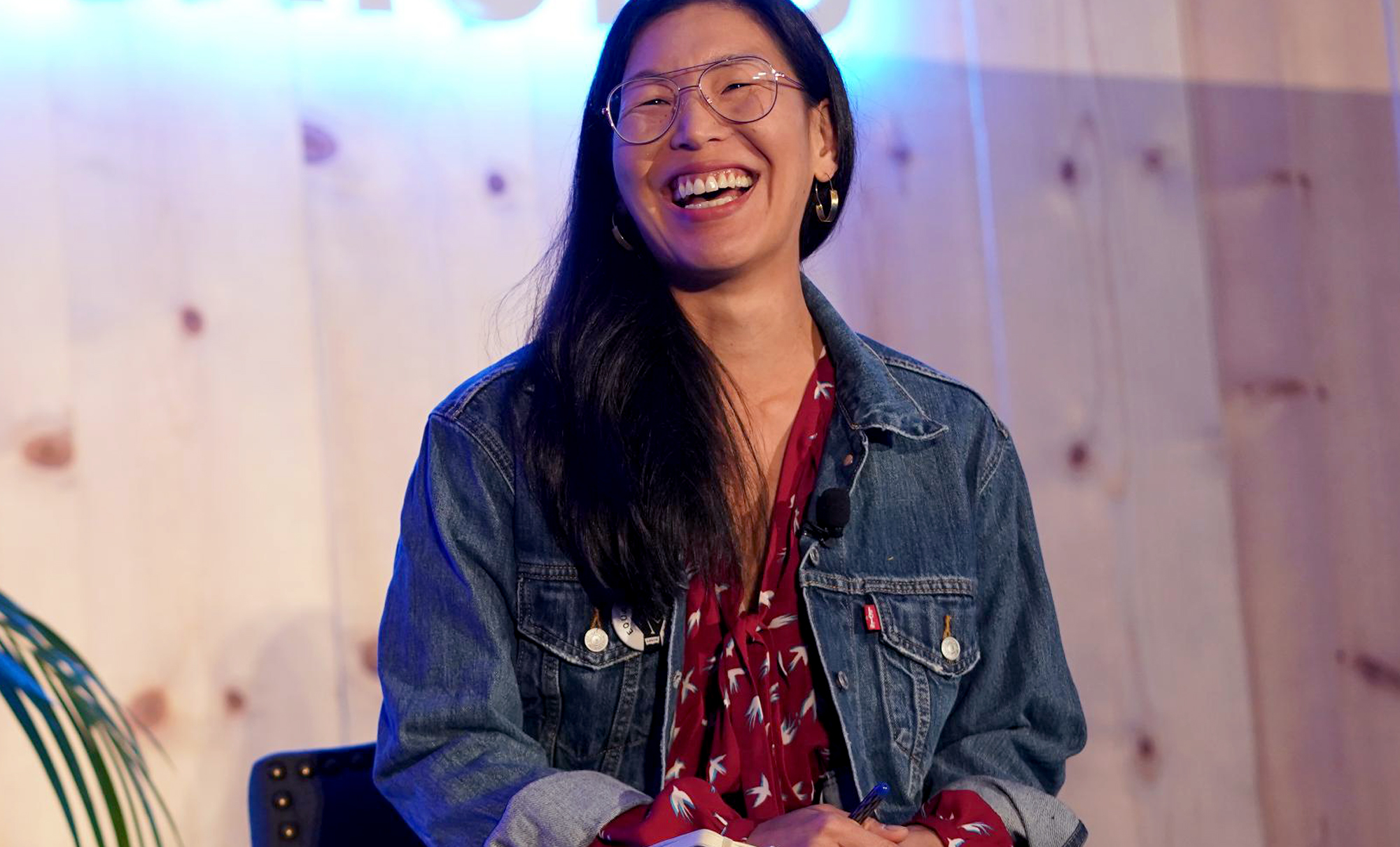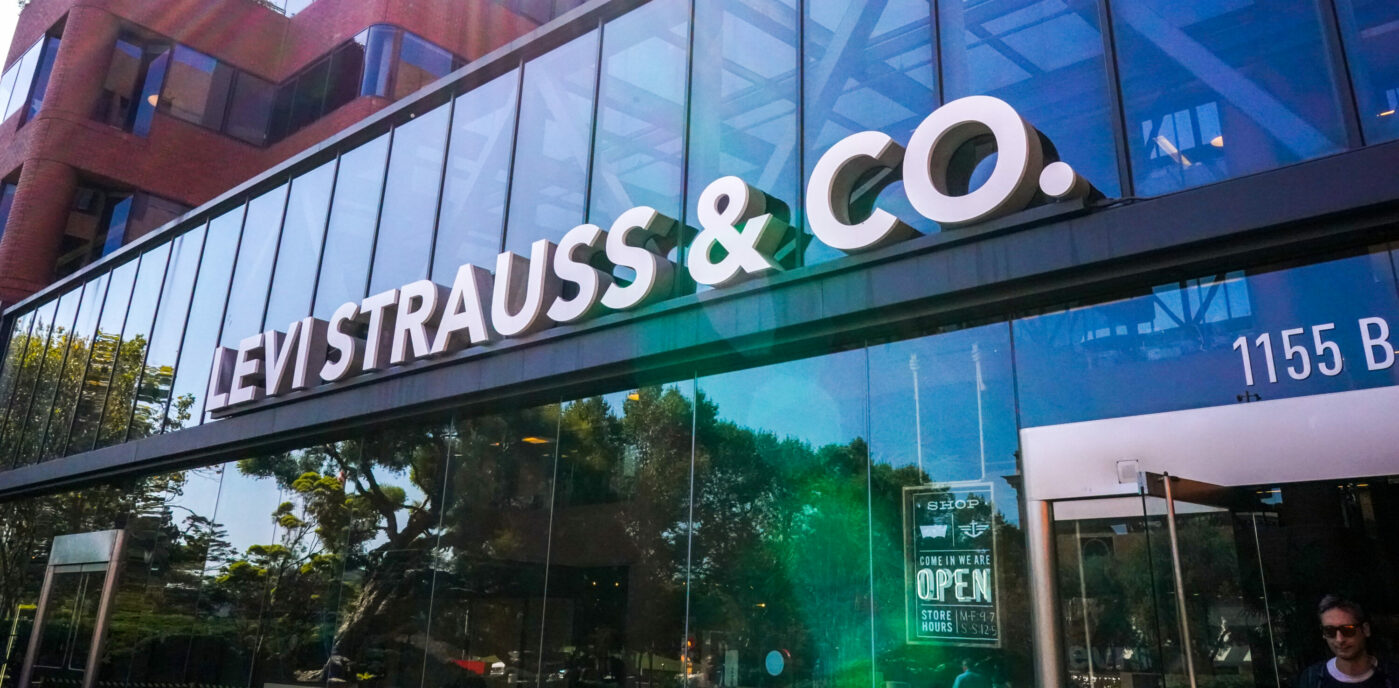Ai-jen Poo, director of the National Domestic Workers Alliance (NDWA), has spent more than two decades campaigning to improve working conditions and labor standards for domestic workers. But in the last few years her work—and her exceptional ability to connect rising movements together in service of advancing the lives of all women—has gained major national attention.
The Levi Strauss Foundation has been funding Ai-jen and her expanding work as part of our gender justice portfolio since early 2017, before her work with the Time’s Up and the #MeToo movement thrust her into the spotlight. Here, she shares thoughts about working to win rights for domestic workers and why she thinks women are about to change the future.
Q: How did you get into this work?
Ai-jen: I was raised by strong women that I thought were invincible. My grandmother was a nurse and my mom was a doctor, and they were both really oriented around service. Watching them handle everything and do everything, I assumed that women were always in charge. When I realized they weren’t, that disconnect felt really sharp for me. Later, in college, I worked the bilingual hotline at the New York Asian Women’s Center. Women would call at all hours of the night in crisis. Some calls related to abusive relationships, but many of the calls were about the indignities and struggles of doing poverty-wage work. These women were working incredibly hard and were still not able to pay the bills and put food on the table. I thought there had to be a way to make these jobs better jobs—or to make sure these women had access to jobs that paid a family-sustaining wage. That’s what set me on this path.
Can you describe the challenges facing domestic workers in this country?
The caregiving and cleaning that happens in our homes behind closed doors has never really been recognized or properly valued in our society. Some of the first domestic workers in the U.S. were enslaved African women, and there’s always been an association with women of color and women of marginalized social status. Both because of who does this work and because of the nature of the work itself, it is culturally stigmatized and undervalued. Oftentimes it is not even referred to as work. It’s called “help,” even though it is a profession for millions of women. Domestic work is also largely invisible. You could walk into any neighborhood and not know which homes are domestic workplaces. The intimacy of being in somebody else’s home creates a power imbalance and a vulnerability to abuse. You might find a wonderful employer that you work with for years and it’s a beautiful and respectful relationship—but you also might find the other end of the spectrum. We’ve seen cases of rape and sexual assault and human trafficking and everything in between.
How did the National Domestic Workers Alliance form?
I first started organizing domestic workers in the Asian community in New York in 1998, and in 2000 I was part of the founding ofDomestic Workers United as a multi-racial, New York City-wide organization for domestic workers. But the organizing we were doing was isolating and challenging. Organizers like me in cities around the country started reaching out to one another. We had our first national meeting in 2007. Fifty of us participated in that meeting, both domestic workers and organizers. Right then and there, we formed the National Domestic Workers Alliance. We felt the power and the potential of coming together and giving voice to the incredible heroism of this work.
You worked hard to ensure that domestic workers were a visible part of Time’s Up and #MeToo. Why?
Our work is very much a part of the same effort, which is to address a power imbalance that structures our economy and that values the lives and contributions of men over women. Women are 54 percent of the electorate, 51 percent of the population, more than half of the workforce, and a lot more than half of the consumer base. Yet we are still overrepresented in positions of vulnerability and abuse and underrepresented in positions of power and decision-making. Making sure that domestic workers were a part of Time’s Up and #MeToo was important, because if we can democratize the economy for the least visible working women, we can make it better for everyone. If domestic workers no longer have to worry about being completely vulnerable to harassment and assault as isolated workers working behind closed doors, if we can create enough voice and power and visibility for those workers, then the workforce will be better for all of us. We’re addressing the imbalance of power in the places where that imbalance is the sharpest.
What has the Levi Strauss Foundation’s funding of your movement enabled?
Their funding has been so critical in our ability to be agile and responsive in the last couple of years, especially in protecting vulnerable communities. In 2018, we formed Families Belong Together, an effort to mobilize hundreds of thousands of people in all 50 states to take action against the family separations happening at the border. It was because of our support from LSF that we were able to move quickly into action on that effort. And I just think the way that LSF invests in and trusts leaders is really important. It’s a real partnership, and like all strong relationships, we know they will respond and support us leaders when there’s a need. Their rapid response funding has been so critical in the last couple of years. The way they build relationships with organizations and leaders, and the way they fund so nimbly and responsively, is both rare and really needed right now.
There’s so much conversation these days about the “closing space” for civil society. But what you’re describing sounds like the opposite.
This is the biggest opportunity we’ve had to update and strengthen our democracy in generations. The level of energy right now is off the charts, and it’s being driven by women. From the workers I talk to every day to new members of Congress and judges elected in 2018, to your everyday woman voter in the Heartland—all of these women I talk to want to do even more and they want to do it together. They want to connect with and learn from and lift up other women. One of the biggest things is that these women want is to work across race. They really want a multiracial future, and they’re willing to fight for it and build it together. Every woman organizer I know is asking themselves the same question right now, which is how do we harness the incredible activism of this moment? And that, to me, is so hopeful.







